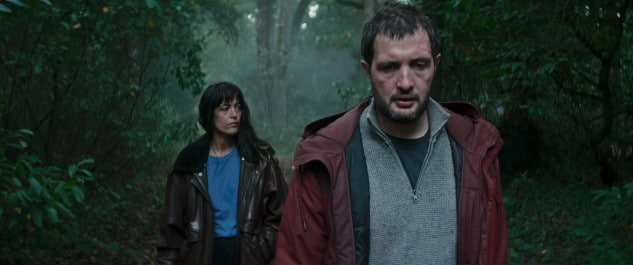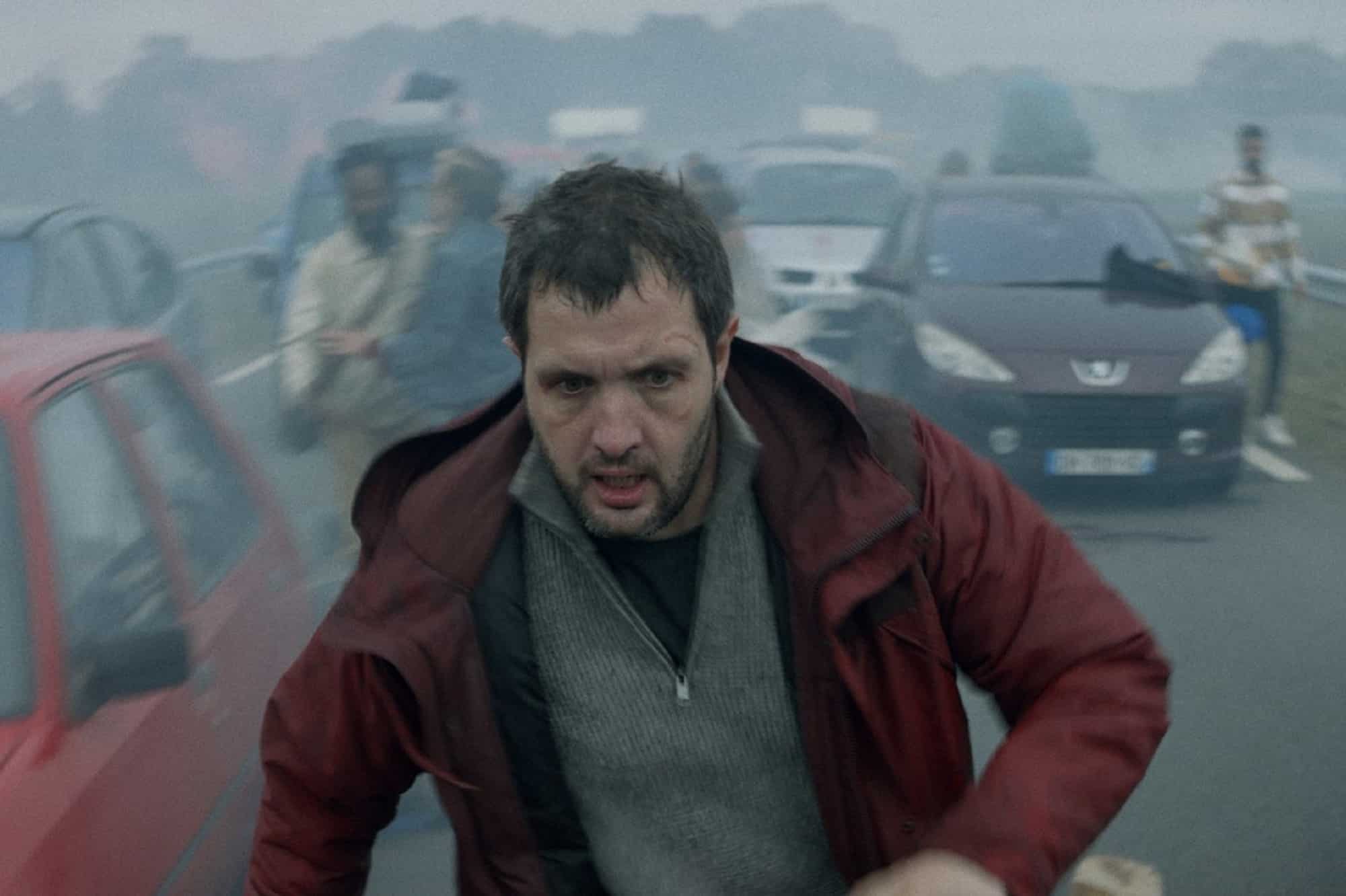
Social satire blends with horror in Vincent Must Die (Vincent Doit Mourir), but not – at least initially – in ways your average viewer might expect. It’s a film which starts small and retains that standard of intimacy, always playing out as one man’s struggle against an unprecedented turn of events, even when those events grow increasingly, to an extent familiarly nasty.
It all starts, as with so much horror, in the workplace. Vincent (Karim Leklou) is a graphic designer and, when we meet him, he’s undergoing an aimless monologue from a colleague (nothing screams ‘work’ like having to listen to someone describe their weird dreams). The awkwardness here is palpable, and recognisable. But when an intern fails to see the funny side of one of Vincent’s comments, returning later on to batter him with a folder, it seems like Vincent’s day has just got considerably worse. A one-off, of course; he decides against making a complaint, and even tries to get a little leverage out of the situation with a few ‘chicks dig scars’ selfies that night for use with his dating profile, so all’s well that ends well. The thing is, the next day at work, another colleague attacks him – and this attack is much more savage. Being stabbed in the arm with a biro apparently draws rather a lot of blood.
Again, Vincent decides not to make a formal complaint, but his line manager thinks it might be best if he works from home for a while anyway (the readiness of Vincent’s bosses to put this sequence of events down to Work Based Stress before sending the victim home is bizarre, yet strangely plausible). Vincent agrees, but by this point, he is highly anxious and destabilised. Is there an agenda against him? He begins to try to spot the pattern, or any potential triggers. In the meantime, his predicament grows more bizarre and alarming, and he begins to suspect that there is a broadening trend of anger and aggression unfolding around him, though he has little time to consider these wider ramifications: his personal ordeal quickly becomes far more brutal and inescapable.
Vincent is understandably genuinely alarmed and afraid here, and as such becomes an excellent, unwitting Everyman character (with a fraught, humane performance from Leklou holding things together throughout). It’s an unsettling viewing experience because we find ourselves sticking so closely with Vincent, and a lot of hand-held camera work makes it feel as though we are moving from place to place with him. Moments of absurdity emerge, though never for long enough to do much more than vary the tone a little, and perhaps to underline just how much of an existential, singular horror story this really is. Nonetheless, the film successfully scales up, introducing new characters and possibilities; they simply come down to us via Vincent and Vincent’s perceptions.
At its furthest extremes, the film could be said to resemble The Sadness, though it never quite crosses into that level of grisly spectacle. It’s slower, more measured, and somehow more domestic than that. Similarly, exposition is minimised to retain the overarching, discomfiting perspective of one man pushed to the edge. It allows director Stéphan Castang, here making his first feature, to do something a little different with what are, essentially, recognisable, potentially post-apocalyptic themes (depending on what’s done with them). And, if it’s difficult at some points to envision how things might end here, there’s enough heart (and horror) to sustain it. This is an engaging story throughout.
Vincent Must Die (2023) recently screened at the Fantasia International Film Festival 2023.
